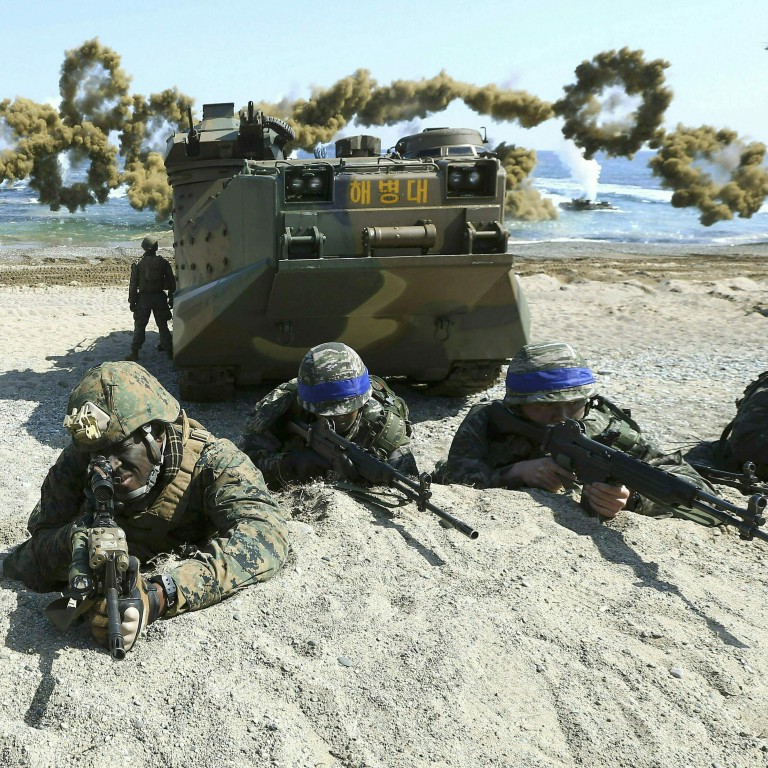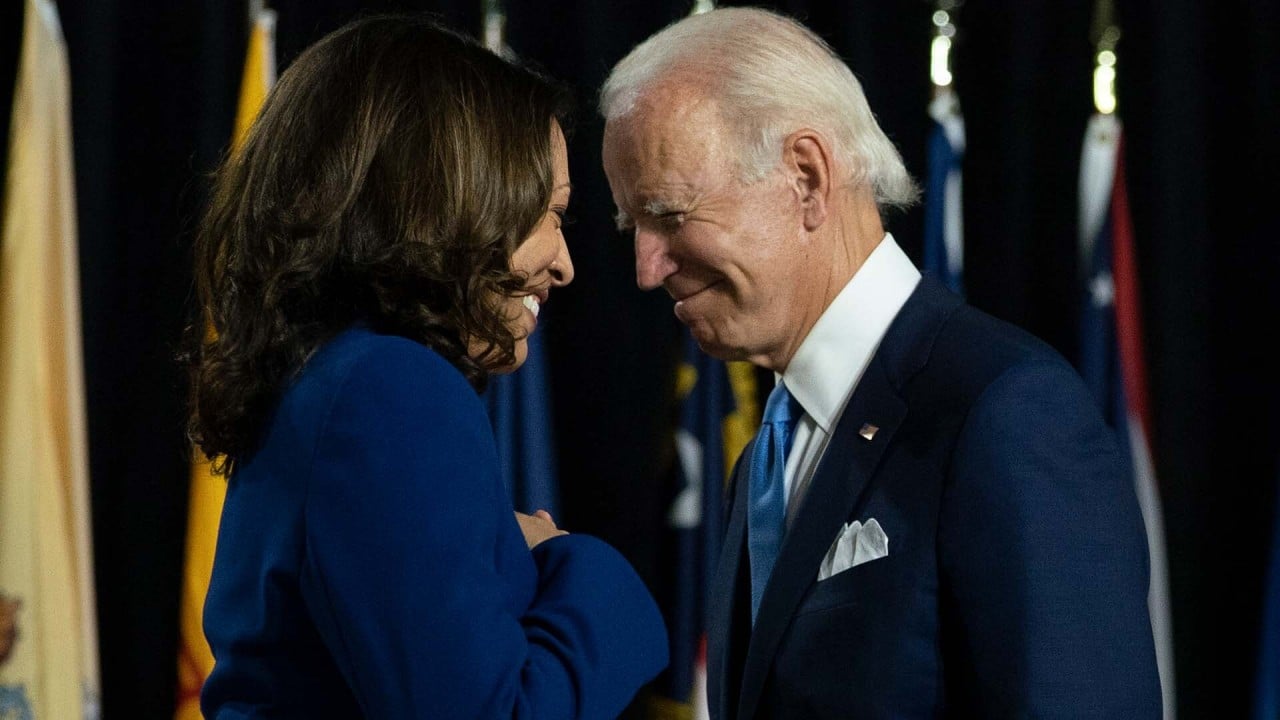
South Korea, US set to move closer under Joe Biden, but China has concerns
- Annual joint military exercises to resume and Biden vows to drop US threat to withdraw troops from Korean peninsula over cost-sharing
- But Seoul must balance security commitments against its economic reliance on China, which is wary of US’ regional presence, observers say

04:35
‘Welcome back America’: world leaders react to Joe Biden’s victory in US elections
Although Biden has yet to outline his Indo-Pacific strategy, the alliance with South Korea is expected to play an important role in Washington’s approach in the region, diplomatic pundits said.
In a phone conversation with South Korean Foreign Minister Kang Kyung-wha, Antony Blinken, the newly appointed US secretary of state, affirmed “the enduring strength and importance of the alliance between the US and South Korea”, which he said was “the linchpin of peace, security and prosperity for a free and open Indo-Pacific region and across the world”, according to a statement by the US state department.
Xi charms Moon as China and US compete for an ally in South Korea
Earlier, South Korea’s President Moon Jae-in, speaking at a meeting of his country’s National Security Council, said the two countries would work together to enable the alliance “to grow even stronger” under the Biden administration.
Unlike Trump, who threatened to withdraw troops from the Korean peninsula over the cost-sharing issue, Biden has promised not to use the troops’ presence to “extort” South Korea, a move that could help fix one of the largest cracks in the alliance, Shen Dingli, a Shanghai-based scholar of international relations, said.
“Although South Korea is economically dependent on China, national security is far more important than economics,” Shen said. “South Korea will be closer to the US in the Biden administration because its goal is to maintain peace in East Asia under the US’ leadership.”

02:32
Washington’s hardened position on Beijing’s claims in South China Sea heightens US-China tensions
Two months after the 1953 armistice that ended hostilities in the Korean war, the US and South Korea signed a mutual defence treaty, a cornerstone of South Korea’s security policy. Under the agreement, the two nations committed to provide mutual aid if either faced external armed attack, and US troops and firepower were allowed to maintain a continuous presence on the Korean peninsula, which North Korea sees as provocative.
China, a long-term ally to North Korea, has also been cautious over the US’ military footprint on its doorstep, which it sees as part of a regional coalition to curb its own growing political and military influence.
As South Korea has grown increasingly dependent economically on China – now its largest trading partner – it has tried to walk a line between the two powers.
South China Sea: the dispute that could start a military conflict
“Rather than choosing between China and the US, South Korea will stick to a neutral position and cooperate according to the different issues,” said Gabyong Yang, senior research fellow at the Institute for National Security Strategy, which is funded by the South Korean government.
The Biden administration, which values its allies, would “ensure South Korea would never drift away”, Yang said.
Guo Hai, an associate researcher at South China University of Technology, said the Biden administration may push for closer ties between Tokyo and Seoul, which are locked in a bitter feud over trade and wartime history.
A US-led trilateral alliance would be a worst-case scenario to Beijing, Guo said. A recently declassified 2018 strategic framework for the Indo-Pacific stated that the US may look to help South Korea and Japan acquire advanced conventional military capabilities and draw the two closer to counter China’s influence.

02:14
Japan-US hold joint military drills including cyberwarfare training as concerns about China grow
“So far the US has just established military alliances with Japan and South Korea respectively, but with Biden in power, he may take the initiative to mediate in the dispute between Japan and South Korea,” Guo said.
Jin Canrong, an international relations professor at Renmin University, said South Korea was looking for a balance between China and the US.
“China will never back North Korea to attack the South, which is an important security guarantee to South Korea,” Jin said. “So for South Korea, China has surpassed the United States in importance in both economic and security areas.”
North Korea cracks down on outside influences, especially from South
In 2016, China was furious and imposed unofficial bans on South Korean businesses after the country’s then president Park Geun-hye agreed to host a US-backed missile defence system, whose radars could track China’s military capability and potentially give the US an advantage in any possible future war with China. Seoul insisted the system was to defend itself from missile attacks from North Korea.
Wu Xiangning, an assistant professor at the University of Macau, said South Korea and the US had different views on how to achieve denuclearisation in North Korea and that was having a negative impact on their military alliance.
“The Moon administration wants the US to restart talks with North Korea,” he said. “Over 70 per cent of South Korean people expect Biden to meet Kim Jong-un, but [the US president] made it clear he would not meet Kim unless he committed to denuclearising.”
“In the meantime, the US will continue to impose sanctions on North Korea, which Moon does not want it to do as he is hoping for a peaceful unification of the peninsula and doesn’t want to upset North Korea too much.”


